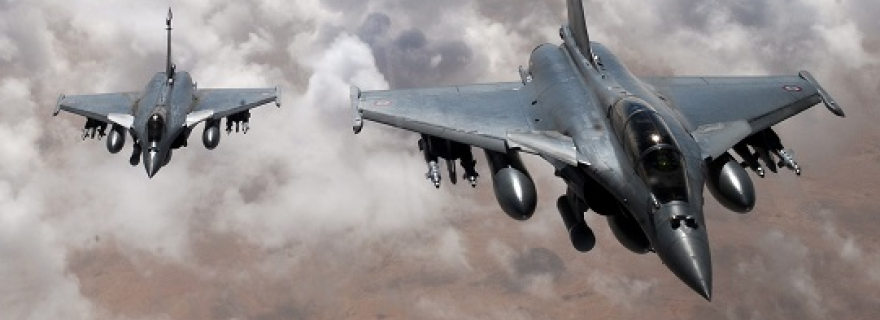Operation Serval: the French Intervention in Mali
Despite initial successes of French military intervention against Islamists in Mali, the question remains to what extent the operation has managed to contribute to a long-term solution to the country’s troubles.
In January 2013, Mali’s government faced a renewed southward push by Islamist rebel forces who had taken control of the country’s north during the previous year. Fearing that the armed forces would not be up to the task of holding off the assault, Mali’s interim president prevailed upon France to provide military assistance. The rapid deployment of French airpower, special forces and, at a later stage, ground assaults on rebel strongholds in Mali’s inhospitable north, undertaken in close coordination with soldiers from other African states, had a decisive effect. Within a number of months, the rebels’ advance was halted, key northern cities were retaken and approximately half of the estimated 2000 Islamist fighters were killed or captured. How can the – initial – success of this French military intervention, codenamed ‘Serval’, be explained?
In early 2012, Mali’s government faced an armed uprising by the nomadic Tuareg people who populate the country’s north. It was the fourth and most destructive rebellion the West African country had experienced since gaining independence from France in 1960. The Tuareg rebellion was driven by a bid for self-rule and empowered by an influx of Tuareg fighters and weapons that followed the collapse of the Gaddafi regime in Libya. Corruption and nepotism had seriously undermined the fighting capabilities of Mali’s armed forces, which quickly proved incapable of halting the rebels’ southwards advance. Matters were made worse when junior army officers launched a spontaneous coup in March 2012. Simultaneously, the Tuareg rebels saw their rebellion hijacked by Islamist forces who had been their erstwhile partners of convenience; al-Qaeda in the Islamic Maghreb (AQIM), the Movement for Oneness and Jihad in Africa and Ansar Dine.
France’s strategic interest in Mali and its neighbors are primarily economic and security-related; safeguarding the Uranium mines just over the border in Niger (responsible for about 20 percent of the fuel for France’s nuclear reactors) and preventing Mali’s descent into a failed state from which Islamist terrorist and insurgents could further threaten region stability and potentially strike at France or its interests in Africa. Having kept an eye on developments in Mali for some time, its government’s request for assistance neither surprised the French authorities nor caught them unprepared.
First of all, France had undertaken extensive diplomatic efforts throughout 2012, drawing the international community’s attention to the Malian crisis, creating the recognition that something needed to be done and laying the legal groundwork to enable a military intervention through various UN Security Council resolutions. When French forces were committed to Mali in 2013 during Operation ‘Serval’, France was not acting alone. The EU Training Mission to Mali (EUTM) was authorized in January 2013 and an African-led International Support Mission to Mali (AFISMA) had been set-up with UN backing and funding, providing the French with the outlines of an exit strategy in the form of partners to which post-intervention responsibility for Mali could in theory be handed.
A second factor in Operation Serval’s success was the formulation of clear overall goals, contingency planning to allow for a flexible response to evolving conditions on the ground, sound intelligence and an executive branch willing to take risks and act rapidly. From a strictly military perspective, Serval also benefited from France’s rapid-deployment capabilities, the availability of military bases near Mali from which special forces and airpower could be quickly leveraged, experienced troops and the support of local allies, notably Chadian troops. Chance and luck, finally, also had their effect; France’s efforts were enabled by the provision of air-lift and in-flight refueling capacity provided by NATO allies, as well as blunders by its Islamist opponents, such as their alienation of the local population by a rapid and harsh imposition of Sharia law.
Despite Serval’s initial successes, the question remains to what extent the operation has managed to contribute to a long-term solution to Mali’s troubles. As the interventions in Iraq and Afghanistan have illustrated, even overwhelming military superiority is no guarantee for achieving clear or lasting victory. The French deployment to the West African nation has not addressed the fractures in Malian society that led to the Tuareg/Islamist insurgency. The short-term deployment of military means alone cannot hope to address such underlying causes. As a result, Serval may ultimately come to be seen as a stop-gap measure; a military success of limited long-term consequence that was primarily able to restore Mali to its status quo prior to the 2012 Tuareg rebellion and coup d’état. While an important short-term victory against Islamist forces in the African continent, Serval’s long-term legacy remains unclear.
Read the full article on which this blog post is based: Sergei Boeke & Bart Schuurman, ‘Operation ‘Serval’: A Strategic Analysis of the French Intervention in Mali, 2013–2014,’ Journal of Strategic Studies.



